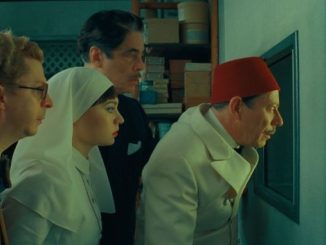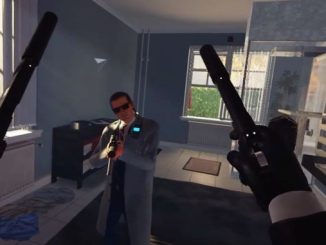Our review of The Last of Us Part II Remastered, developed by Naughty Dog. Available January 19, 2024 for PS5.
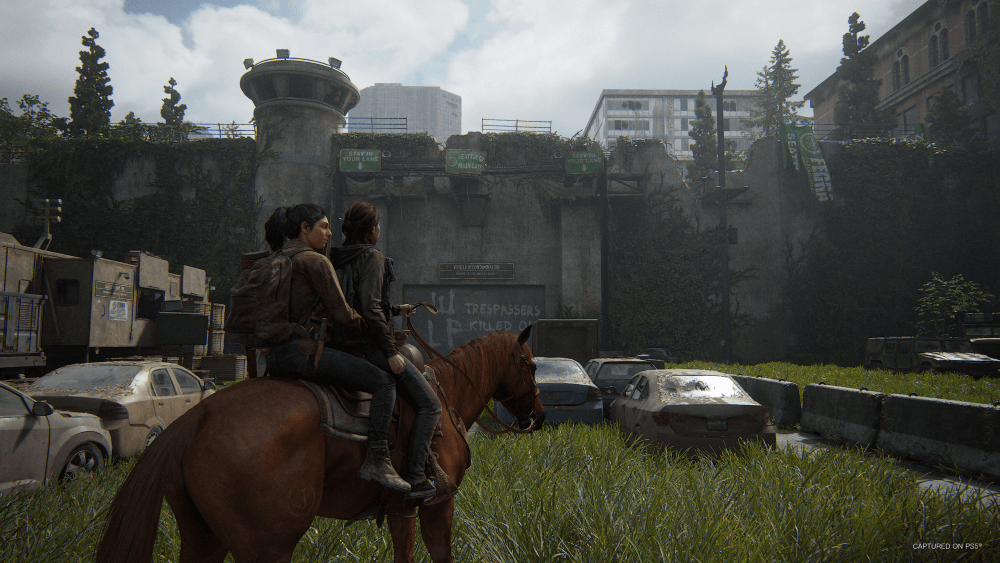
WHAT IS IT?
A (largely unnecessary) remaster of an essential video game.
IS IT GOOD?
It is a modern masterpiece.
WHO SHOULD PLAY IT?
Anyone who, like this writer, missed out on the original The Last of Us 2.

JOEL AND ELLIE
Every once in a while a game comes along that astonishes you. Something clicks, the combination of writing, performance, and gameplay resulting in a truly great experience, a reminder of what makes video games special.
The last time a game made me feel this way was 2020, which also happens to be the year The Last of Us Part II released. Though I missed it at the time, a new remaster has finally given me the chance to play this modern masterpiece, which, I am delighted to report, is one of the great games of our age, and a must-play for anyone interested in cutting edge interactive storytelling. TLoU 2 is also, for those so inclined, a wonderful way to pass the time during the very long wait for the second season of the Last of Us TV series.
To be honest, I thought the original The Last of Us was overrated. Its protagonist, Joel (Troy Baker), was too mean and cruel a figure to warm to, notwithstanding some wonderful character moments between Joel and his ward/surrogate daughter, Ellie (Ashley Johnson). Those who have seen the stellar television adaptation, in which Pedro Pascal’s kinder, gentler Joel is paired perfectly with Bella Ramsey’s loveably headstrong Ellie, would be surprised by the Joel of the first game, who tortures and murders his way through a dozen or so hours of misery. (It’s not exactly a “fun” game.)
The first TLoU‘s gameplay also left something to be desired: rarely scary, despite its horrifyingly designed zombies – technically, humans infected by the (real life) cordyceps fungus – it too often devolved into prolonged gunfights where the only real challenge was scrambling for ammunition. This is not to say TLoU didn’t deliver some of the best storytelling in recent memory – Joel and Ellie’s journey is one for the ages – but it was, at best, an imperfect experience as a game.
Not so for The Last of Us Part II, a video game which keenly understands the strengths and limitations of its chosen medium. In particular, TLoU 2 accomplishes that rare feat of making everything you do – every environment you explore, every combat encounter you survive, every item you scrounge for – feel essential.
It is story-driven gameplay at its finest, in service of a very specific story told by some very gifted storytellers. In a world where microtransactions and “experience grinding” and the absurd sight of the Incredible Hulk distracted by loot crates is par for the course, The Last of Us Part II stands out for its narrative cohesiveness. It simply feels real, and the characters – and their decisions – are some of the most believable in gaming.
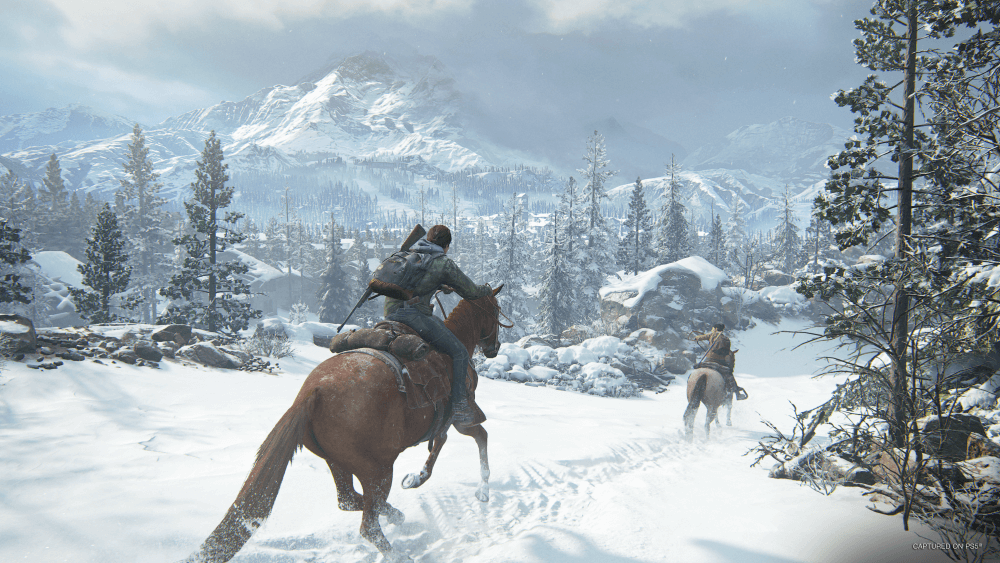
ABBY AND LEV
Gamers, or those who have seen the first season of the TV series, will recall that TLoU follows the journey of grizzled smuggler Joel (Baker in the game, Pascal on TV) as he accompanies a very special teenage girl named Ellie (Armstrong / Ramsey) across a hellish post-apocalyptic landscape. In the world of TLoU, the U.S. has devolved into factional warfare in the wake of a zombie-like outbreak, with most major cities having fallen into ruin. Ellie’s remarkable secret is that she is immune to infection, seemingly the last person on Earth who can be bitten or scratched by the game’s “infected” without being transformed into one of them.
At the conclusion of the first game (spoilers!), Joel/the player are forced to make an impossible decision, prioritizing Ellie’s life at the cost of a potentially world-saving vaccine. It is, arguably, the wrong choice, and TLoU 2 does an admirably upfront job of acknowledging this. TLoU 2 wants players to see and understand the consequences of Joel’s actions, not least his wholesale slaughter of the rogue medical team that had planned to kill Ellie and harvest her DNA to develop a vaccine.
TLoU 2 picks up five years after the events of the original, Ellie now nineteen years old and very much an angry, grizzled veteran in the mould of her surrogate father. Their fraught relationship, exacerbated by Joel’s guilt over his decision in the first game – and his lying to Ellie about it – forms the backbone of this second story, which places far more emphasis on Ellie’s journey than Joel’s. Indeed, by the end of the game, players will have spent far more time controlling Ellie – and another survivor, the brand-new character Abby (Laura Bailey) – than Joel, the protagonist of the first game.
TLoU 2 has a better handle on relationships – between friends, lovers, coworkers, enemies – than perhaps any other video game. That begins with Ellie’s queerness, only hinted at in an optional side-story in the original game, but which is front and centre here. While TLoU 2 isn’t exactly a love story, Abby’s relationship with new character Dina (Shannon Woodward) is integral to the story, with Dina stepping into the AI-controlled supporting role that Ellie held for Joel in the first game. Theirs is a believable relationship, one that looks and feels like young love between two people who have lived through extraordinary times.
Newcomer Abby, meanwhile, has a whole different set of characters – and obstacles – to worry about, but it’s fascinating to see the way her story intertwines with Joel and Ellie’s, while also swerving off in interesting, novel directions. Abby’s presence in the upcoming second season of the Last of Us TV show is sure to prove divisive, but by the end of this game she has done more than enough to establish herself as a memorable figure in TLoU lore. (It will certainly be interesting to see how the TV show pulls off this game’s searing finale.)
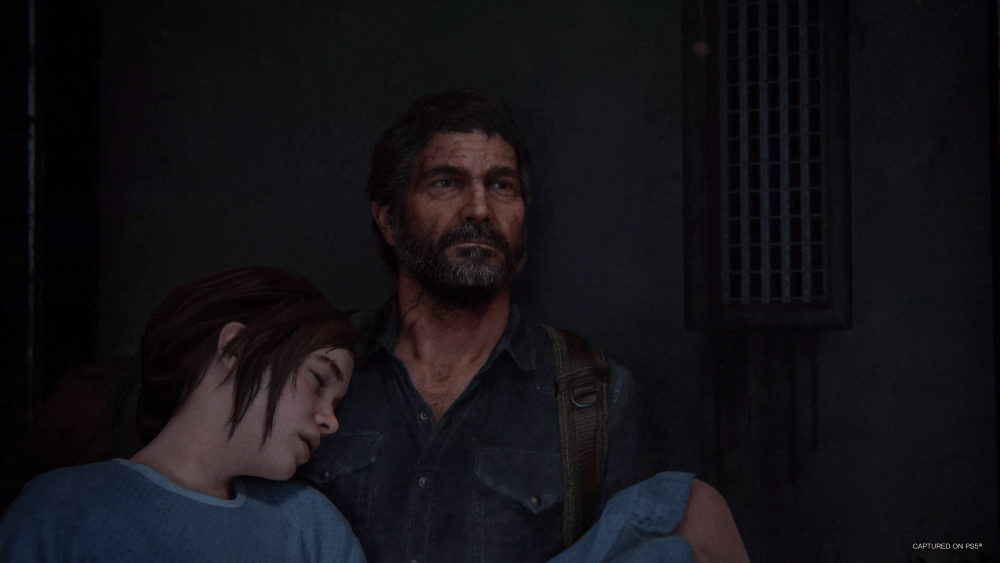
ZOMBIES AND ME
Unsurprisingly, TLoU 2‘s greatest strength is its characters, and the actors who portray them. Baker is a fine (if overused) video game voice and mocap actor, and he brings a solemnity to Joel that makes sense given everything – seen or only alluded to – he has experienced. Armstrong’s Ellie is even better, delivering one of the best performances in gaming history as a former child soldier turned (anti)hero, one who unwittingly perpetrates many of the same crimes as her enemies. Laura Bailey’s Abby – an older, tougher, impressively muscular fighter – is far different from Ellie, though her journey carries interesting parallels, not least in the sidekicks who wind up tagging along for her story.
Which brings me to TLoU 2‘s other strength: its writing. One of the best things about TLoU 2 is how it interrogates the assumption that the hero of a story must, necessarily, be a “hero”. Much like Shadow of the Colossus before it, TLoU 2 dares to show the negative consequences of a player’s actions, sowing doubt about the morality of what you do to survive, and precisely how you go about doing it.
Ever since Mario first booped the heads of a thousand smiling turtles, video games have been criticized for the thoughtlessness and anonymity of their violence. Here, despite being what is easily one of the most brutal games in years, TLoU 2 evinces a deep understanding of what it means to kill or to harm. In particular, by giving names and backstories to the enemies – human and zombie alike – you encounter, the game habitually underscores the inherent tragedy of your actions. When you fell an enemy with a bow-and-arrow and their friends call out, “Oh god, they killed Frank!”, it’s hard not to feel a pang of regret. Similarly, when you take out a horde of zombies, then find the diary detailing the last days of the family you just unwittingly killed, it serves as a painful reminder that everyone is, ultimately, just another would-be survivor.
That philosophy extends to the way the game world is designed, and the way you journey across it. Unlike so many other video games, you will never, ever, feel like you’re spinning your wheels, or exploring just for the sake of exploring. Each road you cross, each building you explore, you do so for a clear reason, in search of a plot-essential item or character, or as a concrete means to a clearly defined end. TLoU 2 is a long game, clocking in at more than twenty-four hours, but not once did I feel like I was being forced to jump through virtual hoops just to reach the next plot beat. Even something that would normally feel gamey – scouring environments for items – feels authentic, given the paucity of resources in this post-apocalyptic landscape. Yes, your character will occasionally make a dumb choice, like detouring into the bowels of a zombie-infested hospital in a desperate bid to save someone’s life, but it’s supposed to feel like a dumb choice, the kind of thing someone might do when overwhelmed by the weight of the world.
Similarly, the game’s approach to combat has been tweaked in smart and satisfying ways, encouraging stealth against both zombie and human enemies, and judiciously deploying enemies only when it makes narrative sense. There are no random encounters in TLoU 2; only those that organically arise as you explore zombie-infested environments or sneak past enemy encampments. I still think the game’s overreliance on gunplay is a mistake – the American fetishization of firearms is on full display here – but the fact that you can largely skate by on stealth and stealth alone does obviate some of the worst elements of the previous game.
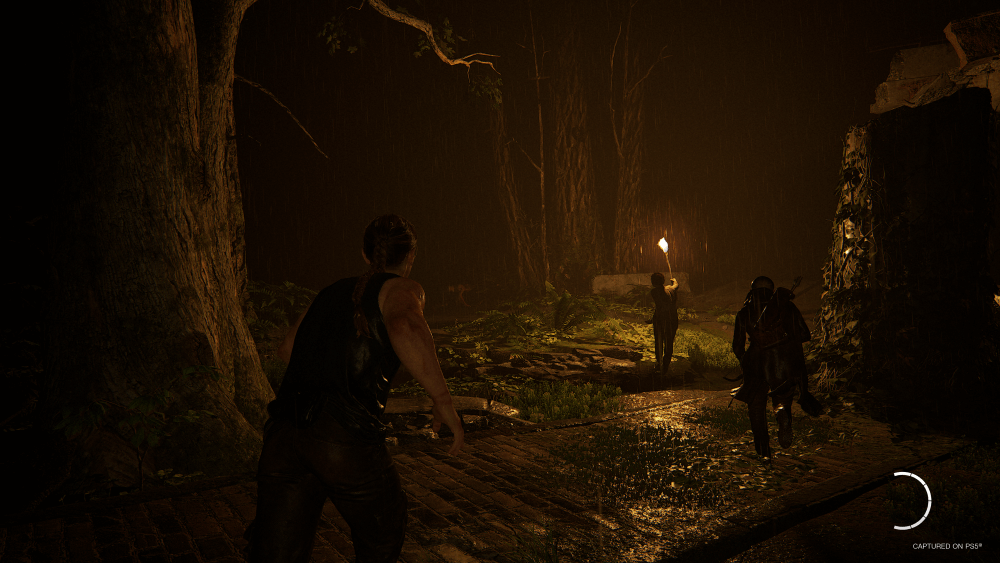
PEDRO AND BELLA
There is no question that the “Remastered” part of TLoU Part II Remastered is unnecessary. TLoU 2 is barely three years old, a late-generation PS4 release that looks just as good running on a PS5 as this so-called HD remaster. A transparent cash-in on the success of the TV series, gamers would be forgiven if they’d rather Naughty Dog had just started work on Part 3 instead. 4k graphics and add-ons like the early-build “Lost Levels” and a (shudder) Roguelike survival mode cannot, alone, justify this purchase.
That said, TLoU 2 Remastered is only a fifteen dollar upgrade for those who own the original, and if you’re coming to it for the first time – as I was – you might as well buy the flashier new version.
On its own merits, The Last of Us Part II is nothing short of a masterpiece. Yes, it’s brutal, and depressing, and there are parts that are unbearably bleak. But in situating humanity at its worst, it also showcases some of humanity at its best, hewing closer to what the TV series has been doing than what was found in the first game.
Joel and Ellie and Abby may not always make the right choices, but they always make the human ones.
***
Final score: 10/10.
Visit the official website for The Last of Us Part II Remastered here.


